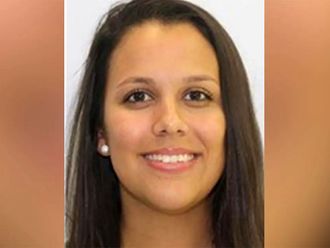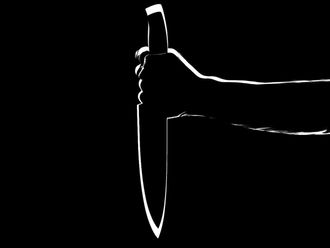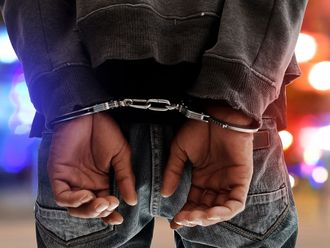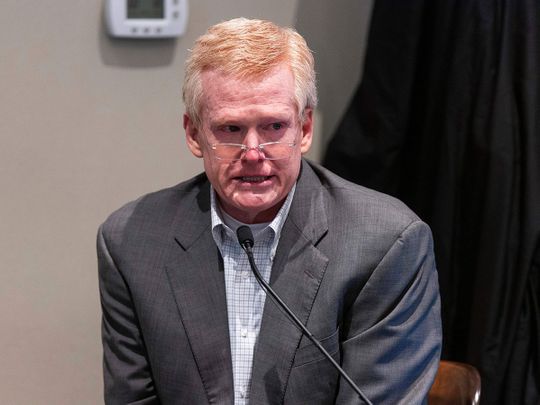
In the more than 20 months since Maggie and Paul Murdaugh were found dead at their family's sprawling South Carolina hunting estate, the public has been enthralled with Alex Murdaugh and the murder charges brought against him - a husband, father and member of a multigenerational legal dynasty who has come crashing down in a very public fashion.
Murdaugh, 54, who has been at the center of worldwide media coverage for months, took the stand this week to give his account of what happened on June 7, 2021, the day his wife, Maggie, 52, and son Paul, 22, were killed. His defense attorneys have argued during the murder trial that no physical evidence connects Murdaugh to the scene of the crime, and prosecutors have staked their case on what they say are his years of financial shadiness, opioid addiction, lies to authorities and struggles to recall key events. If Murdaugh is convicted, he could face up to life in prison.
Not a murderer, but embezzled money?
Alex Murdaugh has pleaded not guilty in the murder case, which has sparked popular docuseries on Netflix and HBO Max; CNN and Court TV have carried the trial live, and media outlets have covered it aggressively since it started Jan. 25.
As the trial appears to be headed to a conclusion in the coming days, here are the background and facts of the case:
Who is Alex Murdaugh?
Richard Alexander Murdaugh is part of a dynasty of elected prosecutors in South Carolina's Lowcountry region. Three generations of the Murdaugh family served as the top prosecutor in Hampton County. Before the killings made the family name known across the country, it had been mostly known in South Carolina for three things, according to the State newspaper in Columbia: "power, justice and big money." As generations of Murdaughs sent thousands of people to prison and dozens to death row, the family's prominent legal firm, named PMPED for its partners' initials, won millions of dollars in civil lawsuits, mostly stemming from fatal collisions.
Alex Murdaugh is the son of the last Murdaugh to hold nearby Hampton County's top prosecutor job. He worked as a part-time prosecutor in that office as well as for the family's law firm, representing people in cases of "personal injury law, including trucking cases, products liability and wrongful death," according to his biography.
After he married Margaret "Maggie" Kennedy Branstetter in Charleston on Aug. 14, 1993, the couple had two sons: Richard Jr., known as "Buster," in 1996, and Paul in 1999. The family owned a 1,772-acre property known as "Moselle," a sprawling hunting estate in Islandton, about 50 miles from Charleston, that includes a four-bedroom home, a farm, two miles of river for fishing and kayaking, and dog kennels.
What happened to the family before June 7, 2021?
In the early morning hours of Feb. 24, 2019, Paul Murdaugh was under the influence of alcohol when he allegedly crashed a boat that killed 19-year-old Mallory Beach. Two months later, a grand jury indicted Paul Murdaugh on three felony charges, including boating under the influence causing death and boating under the influence causing injury.
After Beach's parents sued over their daughter's death, Paul Murdaugh's attorneys told them that he couldn't afford a settlement. That's when Beach's family requested a court order for the younger Murdaugh to disclose his bank records. A hearing had been scheduled for June 10, 2021, but the charges were dropped after Paul Murdaugh's death, WCBD in Charleston reported. During his testimony in the murder case, Alex Murdaugh repeatedly said that his son faced "the most vile threats" on social media following Beach's death but that the family did not take them seriously.
The Beach case was not the only example of what prosecutors say is the Murdaugh family's financial shadiness. Authorities allege that in the wake of the 2008 financial crisis, Alex Murdaugh began a decade-long cycle of borrowing and spending that led him to swindle nearly $9 million from his law partners and clients. Prosecutors also say a staffer at PMPED barged into Murdaugh's office on June 7, 2021, demanding answers about $792,000 in legal fees that were missing after Murdaugh had worked on a lucrative case.
In his testimony, Murdaugh apologized to "the people I had stolen money from for all of those years."
Murdaugh testified that bad land deals and an addiction to opiate pills helped put the family in desperate financial shape. Murdaugh acknowledged his years-long addiction to pain killers, saying he sometimes took more than 2,000 milligrams of oxycodone a day in the months leading up to the death of his wife and son. (The recommend dose for adults with acute pain is 5 to 15 milligrams every four to six hours, according to the National Institutes of Health.)
"It got to the point where I was taking so much just to not backslide or go into withdrawals or have all those symptoms," Murdaugh testified, confirming to prosecutors that he took dozens of 30-milligram instant-release pills daily. "It evolved over time."
What happened the day Maggie and Paul were killed?
Some of the details of Moselle on June 7, 2021, are murky.
Murdaugh testified that he last saw his wife and son at the property two hours before he found them dead.
Murdaugh said he returned to Moselle shortly after 10 p.m. and found Maggie and Paul's bodies near the outdoor dog kennels. Police later determined that the wife and son were killed about 9 p.m., and a coroner's report confirmed that they were each shot multiple times with separate weapons.
Murdaugh testified that he tried to find a pulse on his son before trying to flip his body over.
"My boy was laying facedown," Murdaugh told the court, saying he touched his son's phone when it slipped out of his pocket.
Murdaugh told the court that he called 911 and "didn't know what to do." A dispatcher asked whether his wife and son shot themselves and whether there were firearms in the area.
"They didn't shoot themselves, ma'am," Murdaugh told the dispatcher, according to a 911 call played in the courtroom. Murdaugh testified that he regretted not taking seriously the threats made against his son.
Why is Murdaugh accused of murdering his wife and son?
Despite the public scrutiny, no arrests were made and no suspects had been publicly named in the months immediately following the killings. That changed in the fall of 2021, when defense attorney Jim Griffin confirmed to Fox Carolina that the South Carolina Law Enforcement Division (SLED) had considered Murdaugh a person of interest "from the get-go."
In September 2021, before it was publicly acknowledged that Murdaugh was a murder suspect, PMPED colleagues confronted him about a copy of a check that the firm said had been improperly written to Murdaugh.
The next day, Murdaugh said, he was shot by a man he had hired to kill him so his surviving son, Buster, could receive at least $10 million in life insurance. (The bullet grazed Alex Murdaugh's head.) When Murdaugh turned himself in for the alleged suicide-for-hire plot, SLED announced an investigation into the 2018 death of a housekeeper at Murdaugh's home. He has not been charged in that case.
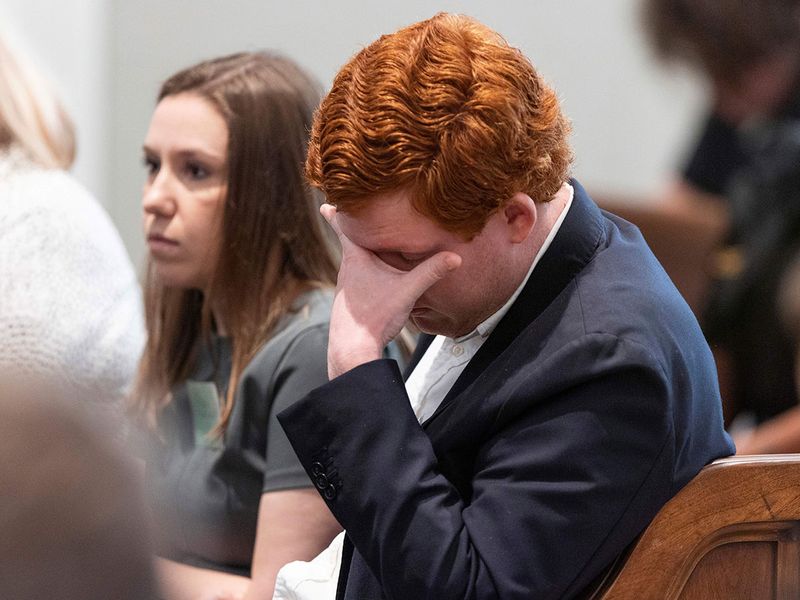
Murdaugh would eventually resign from the law firm, and the South Carolina Bar revoked his law license.
A grand jury indicted Murdaugh in June 2022 in the case of Maggie and Paul's deaths. He was charged with two counts of murder and two counts of possession of a weapon during the commission of a violent crime. The indictment accuses Murdaugh of shooting his wife with a rifle and his son with a shotgun. Prosecutors say Murdaugh's motive for killing his family members was to "shift the focus away from himself and buy himself some time to try and prevent his financial crimes from being uncovered, which - if revealed - would result in personal, legal, and financial ruin for Murdaugh."
His defense attorneys have maintained that no physical evidence implicates him in the crimes. On the stand, Murdaugh said that while he admitted to lying to authorities and suffering from "paranoid thoughts" that he attributed to his opioid addiction, he denied that he killed Maggie and Paul.
Murdaugh, who was emotional throughout two days on the stand for his testimony and cross-examination this month, said he's been drug-free for about 18 months.
"I wasn't thinking clearly," he told the courtroom, saying he was sorry to all of his family members, including Buster. "I would never intentionally do anything to hurt either one of them - ever."
What is Buster's involvement in the trial?
Before his father took the stand, Buster Murdaugh, 26, testified in his defense, telling the courtroom that Alex Murdaugh was "destroyed" and "heartbroken" after the killings. His father sounded "normal" when he spoke to him not long after prosecutors say the killings took place. But the elder son knew something was wrong when his father called him back, he testified.
"He said, 'Are you sitting down?' He sounded odd, and then he told me that my mom and my brother had been shot," Buster Murdaugh testified, fighting through tears. "I just sat there for a minute; I was in shock."
What is the prosecution's strategy?
Prosecutors grilled Alex Murdaugh on why his testimony was the first time he publicly admitted to lying to authorities about being at his family's dog kennels minutes before his wife and son were shot.
The trial has also had its tense moments, including when Murdaugh suggested that prosecutors operated in bad faith by not responding to his attorney's requests to meet. In response, lead prosecutor Creighton Waters said that Murdaugh was given opportunities to cooperate and share his version of events before he was named a suspect and that the defendant made up his version of events as part of a "new story."
"So you, like you've done so many times over the course of your life, had to back up and make a new story that kind of fits with the facts that can't be denied. Isn't that true, sir?" Waters asked.
"No, sir," Murdaugh replied. "That's not true."
Waters has also accused Murdaugh of making up an alibi for a four-minute period on the night of the killings that Murdaugh said he could not recall. Prosecutors have argued that Murdaugh walked 293 steps and made numerous phone calls between 9:02 p.m. and 9:06 p.m. on June 7, 2021. Murdaugh again denounced Waters's accusation as "absolutely incorrect," testifying: "It is an absolute fact that I am not manufacturing an alibi as you say."
The trial, which appears to be headed to a conclusion, resumes Monday at 9:30 a.m. with the defense calling more witnesses.


